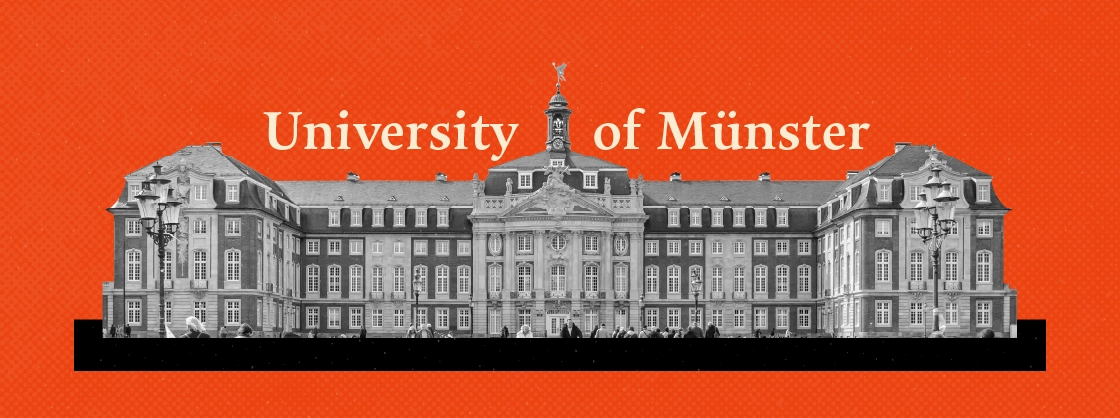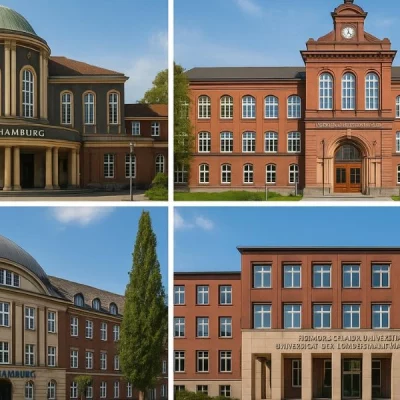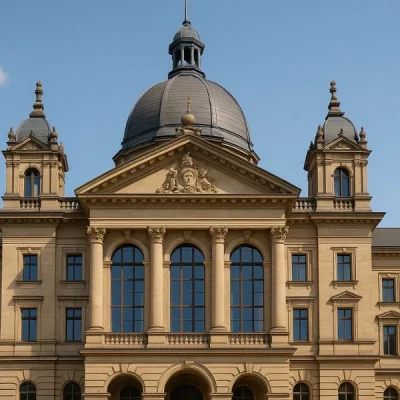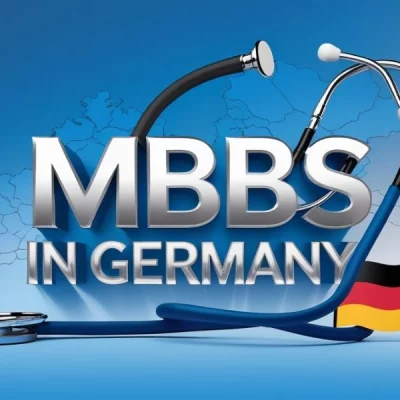University Of Munster: Rankings, Fees & Courses Details
Table of Contents
Münster is an independent city in Germany located in the state of North Rhine-Westphalia. Like many other cities in Germany, it has also gained fame for providing world-class education to domestic and international students. The University of Münster is a prominent university in this city. It offers quality education along with a wonderful student life.
Here, you will read some prominent facts about the University of Münster.
Introduction to University of Münster
The University of Münster is one of the largest and most respected universities in Germany. It is a three centuries old university and today it offers education to worldwide students in various disciplines. In German, its complete name is Westfälische Wilhelms-Universität Münster, WWU. The University has a rich history and legacy.
History and Legacy
The University of Münster was established on 16th April 1780. The university initially focused on theology and law. Over the centuries, it expanded and started teaching a broad range of disciplines. Today, the university is known for its research excellence. This excellence can specifically be witnessed in nanotechnology, mathematics, and the humanities. It is part of Germany’s “Excellence Strategy.”
It has historic buildings, like the Schloss Münster. These buildings symbolize its long-standing academic legacy and cultural significance.
University of Munster Rankings
Global University Rankings
The University of Münster globally ranks #367. This ranking has been given to it by the world-renowned organization named “QS” in its 2025 rankings. A total of 1503 universities have been ranked in the QS World University Rankings 2025. Another organization named THE (Times Higher Education) has ranked it #235 in its 2024-2025 world rankings.
Subject-Specific Rankings
Subject-specific rankings have their own significance. Different organizations have given it subject-specific rankings. Here are some of the subject-specific rankings of the University of Münster.
Materials Science: Ranked #215 by US News
Immunology: Ranked #197 by US News
Geosciences: Ranked #245 by US News
Environment/Ecology: Ranked #529 by US News
Economics and Business: Ranked #393 by US News
Cell Biology: Ranked #173 by US News
Cardiac and Cardiovascular Systems: Ranked #144 by US News
Biology and Biochemistry: Ranked #204 by US News
Arts and Humanities: Ranked #139 by US News
Communication & Media Studies: Ranked well by QS in previous years
Law: Ranked #84 in the 2024 THE (Times Higher Education) ranking
Communication Sciences: Ranked in the 76-00 group in the Shanghai Ranking of Academic Subjects, and fifth in Germany
Chemistry: Ranked in the 76-100 group in the Shanghai Ranking of Academic Subjects, and third in Germany
Mathematics: Ranked in the 51-75 group in the Shanghai Ranking of Academic Subjects
National University Rankings
This has given the University of Münster 16th place among the global universities in Germany.
Reputation in Research and Academia
The University of Münster has a great reputation in research and academia. QS has given it 31.6 marks in academic research.
Courses Offered at the University of Münster
The University of Münster offers numerous undergraduate, postgraduate, and doctoral programs for students. Besides, there are also short-term courses and exchange programs at the university. Here are some of the popular programs available at the university.
Undergraduate Programs (Bachelor’s)
- Bachelor of Arts in History
- Bachelor of Science in Biology
- Bachelor of Laws (LL.B.) in Law
- Bachelor of Science in Mathematics
- Bachelor of Arts in Communication Studies
Postgraduate Programs (Master’s)
- Master of Science in Nanoscience
- Master of Arts in European Governance
- Master of Science in Geoinformatics
- Master of Laws (LL.M.) in International and European Law
- Master of Arts in Political Science
Doctoral Programs (PhD)
- PhD in Mathematics (Cluster of Excellence Mathematics Münster)
- PhD in Physics (Nanotechnology Center CeNTech)
- PhD in Biology (Evolution and Biodiversity)
- PhD in Philosophy
- PhD in Medicine (Biomedical Sciences)
Short-Term Courses and Exchange Programs
Short-Term Courses
- Summer and Winter Schools: 2-4 weeks programs on topics like European Studies, Sustainability, and Language and Culture
- German Language Courses: Intensive courses for improving German proficiency.
- Guest Auditor Program: Allows individuals to attend lectures and seminars without enrolling in a degree program.
- International Research Internships: Short-term research placements in STEM fields. It offers hands-on experience in university labs.
- Intercultural Competence Training: For developing skills in intercultural communication and global collaboration.
Exchange Programs
- Erasmus+ Program
- Worldwide Partner Universities (exchange opportunities with universities in the USA, Canada, China, Australia, and beyond)
- Faculty-Led Exchange Programs
- International Student Exchange Program (ISEP)
- Internships Abroad
Popular Majors and Fields of Study
It will also be significant to know about the popular majors and fields of study at the University of Münster. Here are some of them.
1. Law
2. Medicine and Life Sciences
3. Natural Sciences
4. Mathematics and Computer Science
5. Business and Economics
6. Social Sciences
7. Humanities and Cultural Studies
University of Munster Fees Structure
- Tuition Fees for EU/EEA Students
Tuition fees are not imparted to students. Students need to pay a “semester fee”.
- Tuition Fees for Non-EU/EEA Students
Things are the same for the non-EU/EEA students.
- Additional Costs
You need to pay the semester fees. Here are the semester fees you are required to pay.
Tasks of the Studierendenwerk Münster (Student Support Services): €119.77
Supplementary student insurance: €0.23
University Sports: €1.40
Tasks of the student body: €17,50
University radio station: €0.30
Semester ticket for cultural events: € 3.40
Semester ticket: €176.40
For the provision of bicycles, cargo bikes, and scooters: €1,17
Scholarships and Financial Aid
Many scholarships are available at the University of Münster. The best example includes the ProTalent scholarship. Furthermore, companies, foundations, and the German Academic Exchange Service (DAAD) offer a wide range of grants.
Admission Requirements
Eligibility Criteria
For admission to an undergraduate program, you should have a secondary school certificate in your respective field. For a postgraduate program, you should have a graduate degree. For PhD, a master’s degree is required. There should also be a research proposal for a PhD or doctoral program.
Language Requirements (German/English Proficiency)
There are certain language requirements for German-taught and English-taught programs. For English proficiency, you should have passed TOEFL or IELTS exams. For German programs, the following are the requirements:
DSH-2 (German Language University Entrance Exam)
TestDaF (at least level TDN 4 in all parts)
Goethe Certificate C2
telc Deutsch C1 Hochschule
Application Process
- Check eligibility criteria
- Visit Uni-Assist platform
- Apply for admission
- Wait for the letter of acceptance
Important Deadlines
Here are the important deadlines for the University of Münster.
- Undergraduate (Winter Semester): June 1 – July 15
- Undergraduate (Summer Semester): December 1 – January 15
- Postgraduate (Winter Semester): May – July (varies by program)
- Postgraduate (Summer Semester): November – January (varies by program)
- Doctoral: Rolling admission (varies by program)
- Exchange Programs: April 30 (for winter) and October 31 (for summer)
Campus Facilities and Student Life
There are numerous campus facilities available for students at the University of Münster. Here are some of these facilities.
Accommodation Options
The University of Münster offers on-campus halls of residence for students. Besides, you also have an option to rent an off-campus student accommodation Munster. Some excellent off-campus properties are located near the university. If you want full impendence, you can choose to stay in private apartments in Munster.
Libraries, Labs, and Research Centers
The university has excellent libraries, labs, and research centers for students for study and research.
Sports, Clubs, and Social Activities
Various social activities are organized for students in the university from time to time. Moreover, arrangements for various sports are available at the University of Munster. There is a special sports center in the university. Some of the facilities that you can find in the university are:
1. Basketball and Volleyball Courts
2. Badminton Courts
3. Indoor Swimming Pool
4. Athletic Track
5. Football Fields: Several grass and synthetic pitches for football (soccer) practice and matches.
6. Tennis Courts
7. Beach Volleyball Court
Support for International Students
The University of Munster also offers support for international students. You can visit the university’s office or union office for support.
University of Munster Research and Collaborations
Below, you will get information about the University of Munster’s research and collaboration.
Research Programs and Institutes
1. Cluster of Excellence “Mathematics Münster”
- Focus: Advanced research in mathematics, encompassing pure and applied areas.
- Key Areas: Algebra, geometry, and mathematical modeling.
2. Münster Nanotechnology Center (CeNTech)
- Focus: Nanotechnology and its applications in materials science, engineering, and life sciences.
- Key Areas: Nanostructured materials, nanoelectronics, and nanobiotechnology.
3. Institute of Molecular Virology
- Focus: Research on viral infections and the development of antiviral therapies.
- Key Areas: Molecular virology, immunology, and virus-host interactions.
4. Institute of Medical Informatics
- Focus: Integration of informatics into medical research and healthcare.
- Key Areas: Health data management, medical imaging, and telemedicine.
5. Center for Interdisciplinary Plasma Science (ZIK)
- Focus: Fundamental and applied research in plasma science and its applications.
- Key Areas: Plasma diagnostics, plasma-based technologies, and material processing.
6. Center for Advanced Materials (CAM)
- Focus: Research on the synthesis and application of advanced materials.
- Key Areas: Functional materials, nanomaterials, and material engineering.
7. Research Institute for Environmental Sciences (IES)
- Focus: Environmental research related to ecology, climate change, and sustainability.
- Key Areas: Environmental monitoring, ecological modeling, and climate adaptation.
Collaborations with International Universities
Some of the partner institutes of the University of Munster are:
- University of California (USA)
- University of Toronto (Canada)
- Fudan University (China)
- University of Sydney (Australia)
- Université Paris-Saclay (France)
- Università di Bologna (Italy)
Industry Partnerships
The University of Munster also has some good industry partnerships. Some of them include:
- Siemens: Collaboration in engineering and digital technologies.
- BASF: Focus on chemical research and sustainability.
- RWE: Research in energy systems and renewable energy.
- Horizon Europe: EU-funded multi-disciplinary research projects.
- CeNTech: Partnerships in nanotechnology and advanced materials.
Career Prospects After Graduation
Employment Opportunities
There are numerous employment opportunities for students of the University of Munster. The university offers on-campus placements also.
Internships and Networking
Similarly, the university also offers internship and networking opportunities.
Alumni Success Stories
Numerous international celebrities succeed after completing their courses at the University of Munster. Some popular alumni from the University of Munster include:
1. Johannes Georg Bednorz (Nobel Prize winner in 1987)
2. Kamla Bhasin (Indian developmental feminist activist)
3. Walter Blume (SS officer)
4. Tobias Böckers (medical academic)
5. Lars Clausen (sociologist)
6. Wolfgang Clement (politician)
7. Kai Diekmann (Chief Editor of Bild, which is Europe’s largest newspaper)
Related Article:-







